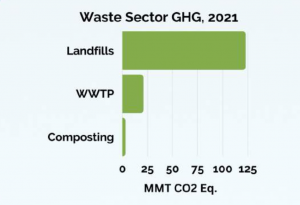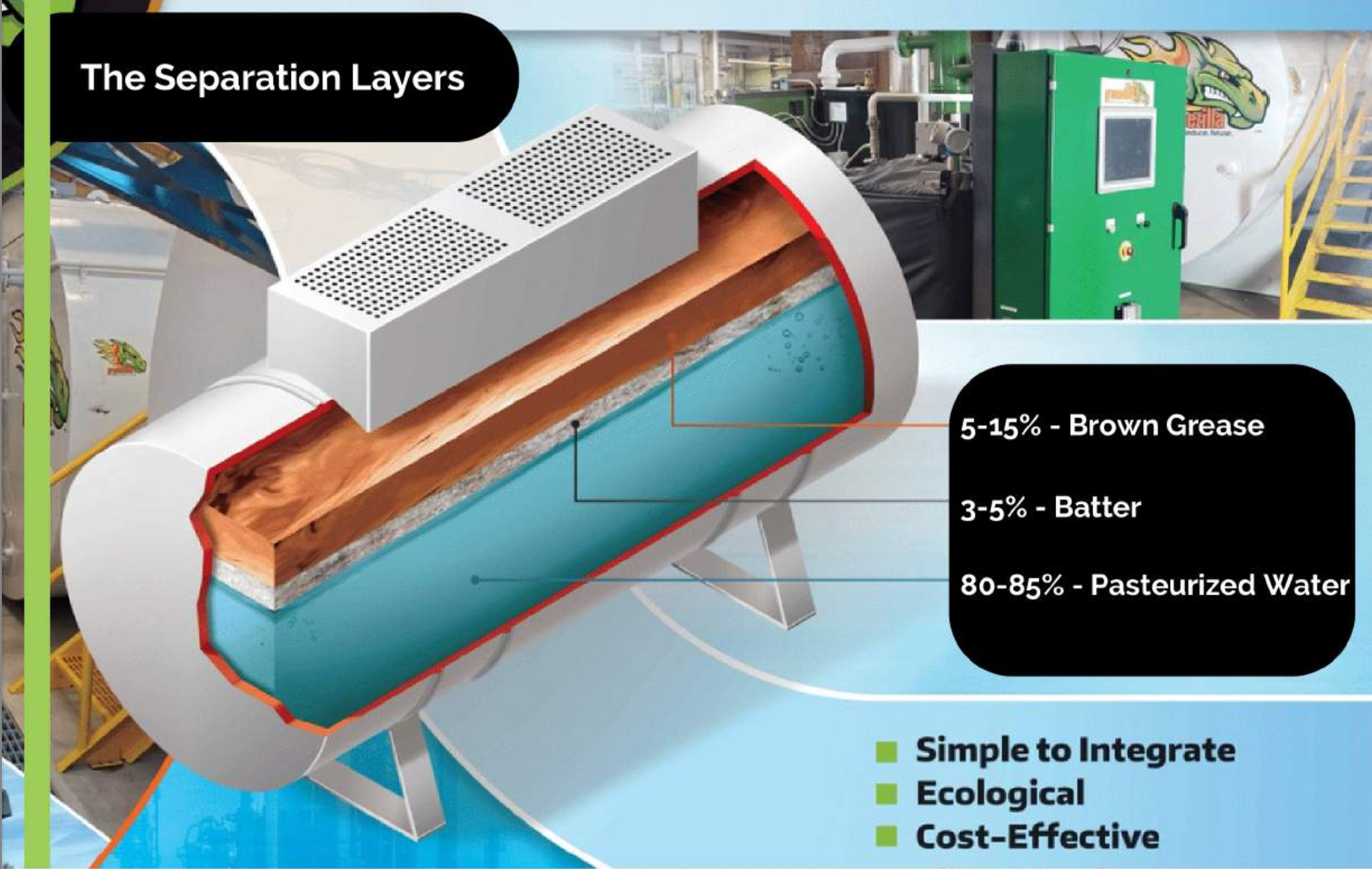From Problem to Solution: The Brown Grease ABF Untapped Opportunity
Revolutionary new technology converts one of the developed world’s worst municipal problems into saleable, renewable biofuel feedstock.
LANSING, W.V., UNITED STATES, May 29, 2024 /EINPresswire.com/ -- The rapidly growing demand for transportation biofuels worldwide is pushing up the need for ABF feedstocks. Since feedstocks can represent up to 80 percent of operational expenses for biofuel production, the use of waste fats, oils and grease (FOG) offers another renewable option that is cost-effective and has a low carbon index.
Current Situation
Currently, the majority of FOG collected in the United States is landfilled or incinerated as a waste product. This practice is wasteful and dirty, overlooking the value of FOG as a vital energy resource, while adding pressure on landfills. In fact, some landfills are so full already that they must turn away haulers hoping to dispose of FOG there.
Once in a landfill, brown grease seeps down into the landfill, along with rainwater, and becomes leachate. It also releases methane into the air, and becomes a contributor of this troublesome greenhouse gas. Diverting brown grease from landfills mitigates this environmental issue, along with problems of landfill overcapacity and cost.
There is a solution. An impressive new technology, Greasezilla℠ is changing this dynamic by processing FOG into a brown grease conversion-ready feedstock. This innovative, thermal separation process enables brown grease Advanced Biofuel (ABF) to move rapidly from an underutilized feedstock to an important and valuable biofuel resource. In this way, Greasezilla transforms the negative-value waste stream into a useful, salable product, by recovering fuel resources from what has previously been considered a nuisance waste.
Municipalities and sanitary waste pumpers/haulers have been on the front lines of dealing with the negative impact of FOG. But indications are that soon, they will appreciate the “brown gold” they are now experiencing in overabundance. The reason why is well-summed up by Jessica Sweeney of CF Technologies, Inc.: “For us, the integration of Greasezilla into our renewable diesel and SAF manufacturing process provides a quality feedstock from an otherwise difficult process. We see FOG and Brown Grease—and many in the industry agree—as the biggest untapped opportunity in the renewable fuel market today, and we’re excited about being part of it.”
Moving Into the Asset Column
Regulatory bodies have already recognized the advantages of using what is already being called “the roundest fuel,” in reference to ecologically favored full-circle materials that can be part of a closed reuse-recycle-renew process. In June, 2022, the United States Federal EPA included a pathway for Brown Grease ABF to take its place among approved biofuel feedstocks. This move extends RINs and low-carbon credits to those producing and using Brown Grease ABF feedstock for the creation of biodiesel, renewable diesel, sustainable aviation fuel and heating oil.
Greasezilla technology adds additional profitability to production facilities by producing a low Carbon Intensity (CI) and lower cost, yet still good quality, feedstock from waste materials. Brown grease carries a low carbon index because it was initially destined to be trash. While soy, palm, and corn are all agricultural feedstocks that divert food from humans, plus require much time, labor, and energy to be expended in their manufacture, brown grease feedstock diverts potential energy from landfills. Not only does this rescue a significant renewable energy source from being wasted, it eliminates a source of methane leaking from those fills.
Three E’s of Brown Grease ABF
It’s easiest to round up the major benefits of the Greasezilla technology and process by grouping them into the “Three E’s:”
Ecological
• Transforms a waste stream into a useful product.
• Does not require polymers, flocculants or other chemicals.
• Reduces the amount of waste heading to landfills or incinerators.
• Eliminates liquid leachate and methane gas from landfilled brown grease
• Recovers a high-quality ABF and renewable diesel and SAF feedstock for global consumption.
Efficient
• Low operational costs
• The process is fueled by a small fraction of the ABF it produces.
• SCADA integration-ready for remote monitoring capabilities
• Minimal staffing required
Economical
• Using a waste product as feedstock lowers the cost of inputs for biodiesel production.
• Brown Grease is a low carbon intensity feedstock, eligible for credits under the Renewable Fuel Standard.
• Revenue may also be generated by collecting disposal fees from regional haulers.
• Average ROI is less than 2 years.
• EBITA of 80% with low OpEx, in relation to revenue.
Huge Opportunity
From both an environmental and profitability standpoint, fats, oils and grease are the biggest untapped opportunity in the renewable fuel market today. All that’s required is the installation of a Greasezilla FOG separation station in facilities that currently see brown grease as a liability.
Expanded to a hub-and-spoke operation, with multiple systems placed strategically across a region, Greasezilla can maximize the recovery of previously wasted energy resources for renewable diesel production and sustainable aviation fuel. Greasezilla’s ABF is already finding demand in the aviation and maritime industries, the industrial sector and with renewable diesel producers.
From a technical angle, Brown Grease ABF meets sulfur limits specified by the 2020 IMO regulations. This, along with its less-than-two percent moisture content and low-cost inputs, make Greasezilla ABF the most desirable feedstock for the clean fuel sector. With Greasezilla, it will also become one of the most accessible.
# # #
High Resolution Files of images shown may be downloaded at: https://drive.google.com/drive/folders/13AVfM-tlizLp8VFVBM-ZVgNHeucCT0AS
About Greasezilla
Greasezilla provides services and technology that significantly reduce or eliminate costs associated with dewatering, drying, lagooning, land applying, composting, incinerating, hauling, tipping or any further treatment of wastewater and grease trap output. In the process, Greasezilla creates a biofuel feedstock sold on commodity exchanges for competitive rates. For more information: http://www.greasezilla.com
Greasezilla Media Contact: Brian Levine | Phone: 304-658-4778 | Email: info@greasezilla.com
Brian Levine
Greasezilla
+1 304-658-4778
email us here
Legal Disclaimer:
EIN Presswire provides this news content "as is" without warranty of any kind. We do not accept any responsibility or liability for the accuracy, content, images, videos, licenses, completeness, legality, or reliability of the information contained in this article. If you have any complaints or copyright issues related to this article, kindly contact the author above.



